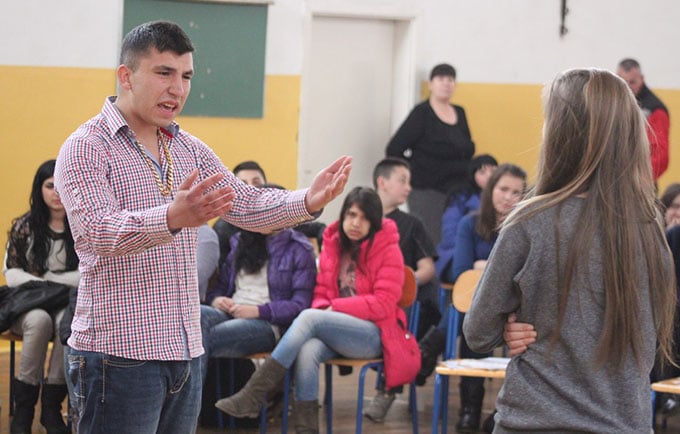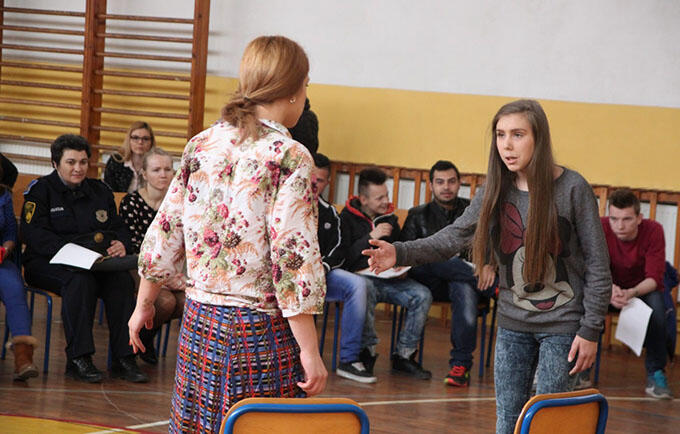SARAJEVO, Bosnia and Herzegovina — Growing up in poverty, Ruža felt trapped and betrayed when her brother arranged for her to be married off to an older man at the age of 15, forcing her to drop out of school.
Stories like this one — the plot of a new forum theater play — are all too common among real girls in the Roma population in Bosnia and Herzegovina. The play, also called “Ruža,” is being performed in various parts of the country to raise awareness about early marriages and how to combat them.
Roma are the largest, and most disadvantaged and vulnerable, ethnic minority group in Bosnia and Herzegovina. Around half of all Roma girls in the country get married before the age of 18, according to the most recent Multiple Indicator Cluster Survey. However, given the low levels of civil registration among Roma at the time of childbirth or marriage, these figures are likely incomplete. It is estimated that most Roma girls get married at the age of 15 or 16, and in some cases even as young as 13 or 14.
“These early marriages should not be seen as a tradition or customary behavior of Roma groups, but as a violation of Roma girls’ human rights,” says Mujo Fafulić, the director of Romalen, an NGO providing support to Roma communities in Bosnia and Herzegovina. “These are forced marriages, which mean they are a form of violence and discrimination, and represent a failure to meet international obligations to realize the rights of children.”

Photo: Almir Panjeta for UNICEF/UNFPA BiH
Child marriage is common in parts of the Eastern Europe and Central Asia region, including in the Balkans, and generally goes hand-in-hand with early pregnancy. Girls belonging to minority groups, especially Roma, are at higher risk than their peers. In Bosnia and Herzegovina, nearly one-third of Roma women aged 20 to 24 gave birth before turning 18, according to a 2011 survey, even though the country’s teenage birth rate at a national level is the lowest in the region.
Around the world, early marriage and early child-bearing prevent girls from achieving their full educational potential and leading healthy and productive lives. Early child-bearing is associated with higher health risks for both the mother and the baby. Teenage pregnancy also often perpetuates poverty and social exclusion across generations, as many young mothers drop out of school and have difficulties finding a job.
The play “Ruža” was prepared with support from UNFPA and UNICEF as well as the NGO Romalen as part of an effort to use theater-based education to increase knowledge and change attitudes about early marriages, especially among the Roma population.
Changing the outcome for Roma girls
The performance includes audience debate led by a teacher or social worker acting as a mediator, who encourages viewers to suggest different actions for the actors to carry out onstage in an attempt to change the outcome of the story they are watching unfold.
“I wanted to show that we should not act as passive bystanders; we can do something to help if a girl is being forced to agree to do something that she does not want to do,” said Belma, 14, who watched the performance and successfully urged the actor who played Ruža’s brother not to marry off his sister after all.
To date, “Ruža” has been performed 10 times in six different municipalities in Bosnia and Herzegovina with large Roma populations, mostly at schools with pupils between the ages of 13 and 16. More than 800 girls and boys along with local authorities, police officers, social workers and teachers have watched and actively participated in the play.
“As many young people as possible must see this play and learn more about early marriages,” says Hana, 13, who said she learned a lot from watching the performance. “If I found myself in a situation like this, I would refuse. I have a right to my childhood.”


